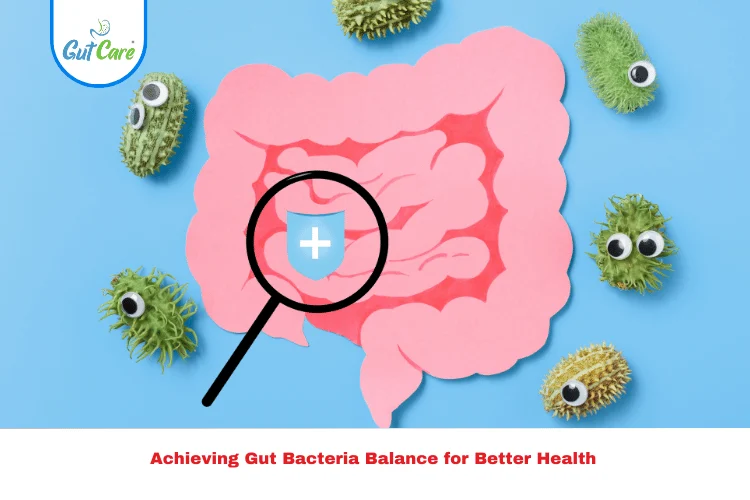There is a lot to think about when you’re pregnant – baby names, birthing plans, and many more. One important aspect that is usually neglected is gut health in pregnancy. At Gutcare Clinics, a reputable gastroenterology center in Bangalore we help moms-to-be understand the fundamental connection between digestive health and a healthy pregnancy.
The gut doesn’t just aid in the digestion of food, but also influences immunity, mood, and of course your baby’s development. In this blog post we’ll take you through how to care for your gut health is pregnancy, common concerns, safe advice, and when to see a specialist.
Why Gut Health in Pregnancy Matters
- Your gut microbiome – a group of bacteria that live in your gut – will change considerably during the pregnancy process. The changes that occur are normal and are necessary to help your body adjust, however, an imbalance in your gut can contribute to:
- Constipation, and bloating
- Food sensitivities
- Poor absorption of nutrients
- An immune system that is just not as strong
- An inflammatory response that may be troubling one mom and baby
Maintaining gut health during pregnancy is extremely important for your well-being and the proper establishment of your baby’s immune and digestive systems.
Common Digestive Issues During Pregnancy
Hormonal changes and the pressure of a growing uterus can affect your digestive system. Some common concerns include:
1. Constipation
Progesterone slows down bowel movement, leading to constipation. Add fiber-rich foods, hydrate well, and consult your doctor if it persists.
2. Heartburn & Acid Reflux
The valve between your stomach and esophagus relaxes, causing acid to rise. Small, frequent meals and avoiding spicy food can help.
3. Gas and Bloating
Your gut bacteria are adjusting, and digestion is slower — both of which can lead to gas. Probiotic-rich foods like yogurt may help.
How to Improve Gut Health During Pregnancy
1. Follow a Microbiome-Friendly Diet
- Eat a diet high in whole, fiber foods:
- Whole grains (oatmeal, brown rice)
- Fruits (bananas, apples)
- Vegetables (dark leafy greens, spinach, kale)
- Fermented foods (kefir, yogurt – if tolerated)
- Avoid ultra-processed sugary foods that disrupt gut bacteria.
2. Hydrate
It is vital to stay hydrated. Water also helps your gastrointestinal system to keep moving. Ideally you want to drink 8–10 glasses a day, or more during physical activity or if you live in a hot climate!
3. Consider Safe Probiotics
Taking probiotics while pregnant may be beneficial and supportive of the microbiome. Some studies show that it may reduce gestational diabetes, and preeclampsia. Be sure to speak with your physician before taking Probiotics.
4. Stress Reduction
It is critical to manage stress when trying to conceive, during your pregnancy and in the postpartum period. The gut-brain axis can be affected by stress and affect your gut microbiome. Things you can try to promote emotional well-being and gut microbiome health include meditation, prenatal yoga, and deep breathing.
Gut Health and Your Baby’s Development
Emerging research demonstrates that a mother’s gut microbiome has the potential to influence her child’s:
- Immune system
- Digestive health
- Allergy / asthma risk
Healthy gut health can potentially mediate smoother delivery as well as the recover postpartum.
When to See a Specialist
If you’re pregnant and experiencing:
- Severe constipation or diarrhea
- Persistent nausea or bloating
- Food intolerances or IBS symptoms
- Sudden weight loss or malabsorption issues
…it’s time to see a gut health specialist.
Dr. Yuvraj Singh Gehlot, lead gastroenterologist at Gutcare Clinics, Bangalore, provides personalized care to support gut health in pregnancy and beyond.
Summary
Gut health in pregnancy is not just about digestion — it’s about building a strong foundation for you and your baby. From balanced meals to safe probiotics, small steps can have lasting benefits. If you’re facing ongoing issues or simply want to optimize your digestive wellness during pregnancy, Gutcare Clinics is here to help.
FAQs: Gut Health in Pregnancy
1. Is it safe to take probiotics while pregnant?
Yes, but only in some situations. Always discuss with your specialist before starting any supplements for gut health while pregnant.
2. What foods improve gut health while pregnant?
Whole grains, fermented foods, fruit, and leafy greens all positively support your digestive health while pregnant.
3. Can a sick gut harm my baby?
Yes. A sick or unbalanced gut microbiome in the mother can affect the baby’s immune system and digestion. This is why gut health is important.
4. What are common gut issues during pregnancy?
Constipation, bloating, acid reflux, and food sensitivity are all common gut issues for pregnant women. These issues will typically be controlled with dietary changes and medically.
5. Why is Gutcare Clinics in Bangalore the safest and best place for care of gut health during pregnancy?
Gutcare Clinics has advanced diagnostics and a full team of gut health specialists, including, Dr. Yuvraj Singh Gehlot. Trust Gutcare Clinics to treat gut health for all pregnant patients safely and effectively.




